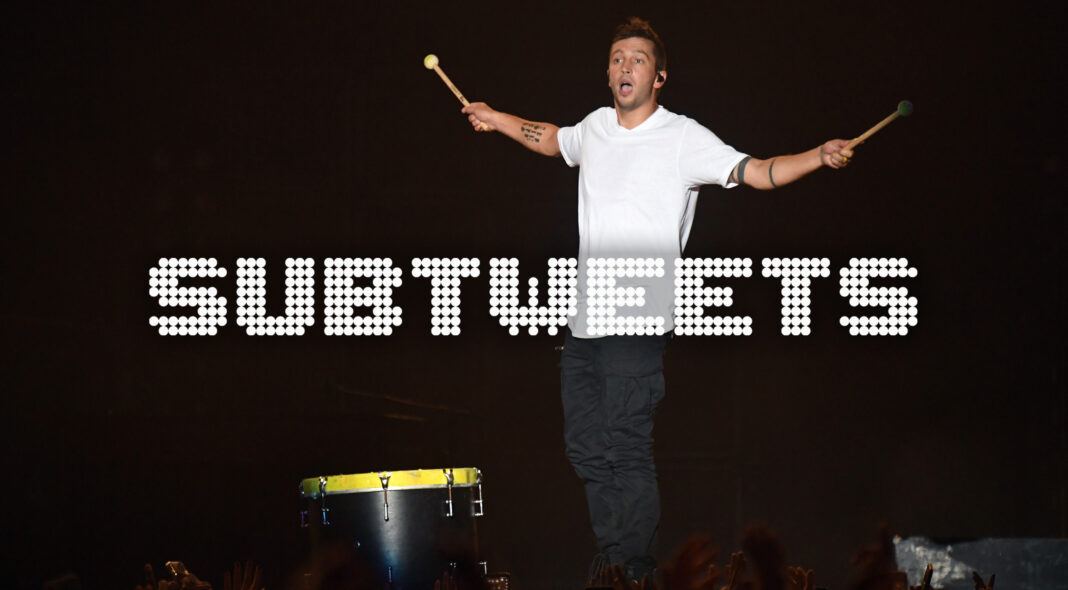In the midst of 2020, everyone is using the Internet to say everything and nothing. We’re scrolling more than ever, and there’s no shortage of incoming information to have an opinion on – new memes, new coronavirus data, new injustices that remind us of the importance of the Black Lives Matter movement. Stuck inside our homes, we rely on social media to forge interpersonal connections, to see who is putting themselves on the right side of current affairs history. But under this degree of scrutiny, is there ever a way to truly sate an entire audience?
Late last week, Twenty One Pilots began trending on Twitter. A quick glance revealed that fans were upset that Tyler Joseph, the band’s frontman and a usually vocal Twitter user, had not used the platform to comment on the Black Lives Matter movement, or show tangible digital advocacy for anti-racism. A handful of questioning tweets quickly became a great many, expressing disappointment and frustration and anger, tagging Joseph and demanding he explained his absence. When he did emerge, it was with a tone of flippant sarcasm – “you guys keep asking me to use my platforms. feels good to dust these bad boys off.” Accompanying the post was two images of the frontman, sporting chunky platform boots.
Naturally, this cheap joke was far from the response that many were looking for. Fan-directed anger only grew, and Joseph was moved to clarify his stance on BLM, while also defending his right to stay offline to protect his own mental health. The conversation that has ensued is less about Twenty One Pilots, and more a debate about the responsibilities of celebrities to speak out on social causes.
In the age of the ‘problematic fave’, it never feels good when your favoured musician doesn’t behave in ways you’d like them to, or expected them to, based on their art. Posting in support of Black Lives Matter isn’t an overly taxing exercise, and in matters that are not political so much as they are humanitarian, silence does equal a level of unsettling compliance. However, it is interesting to consider for a moment how our expectations of celebrity ‘wokeness’ often says a lot about our ourselves.
The majority of Twenty One Pilots fans seeking comment from Tyler were white, digital-savvy and well aware of the necessities of the Black Lives Matter movement. At this stage of the discourse, did they really need Tyler to add another tweet to the mix? Or were they merely looking for confirmation that their fandom had been well placed, a reflection of their own well-intentioned but guilt-loaded desire to be seen ‘doing’ allyship? For Black fans, it was Joseph making light of the situation that was more offensive than the initial silence – in the words of one user “I was fine before it was a trend and I’ll be fine afterwards. But not using your platform PLUS joking about not doing so? Nah.” By speaking for and over Black fans, the energy expended on making Joseph a trending topic could well have been used to elevate a more positive conversation of advocacy, one with much more tangible impact.
Perhaps it is true that in 2020, when education is only a mere click away for most, we’re still putting too much stock in musicians to do the talking for us. While we perceive a lack of platform use as a missed opportunity, not all popstars come equipped with the skills or confidence required to intelligently and authentically discuss current affairs. Until social progressiveness is written into record deals, we can’t always rely on our musicians to be our moral compass.
There is also the matter of individual circumstance – though Tyler’s response was dismissive and stubborn, nobody can be truly aware of the work he might be doing offline, or the mental health struggles that he alludes to in his explanation. The pressure to comment as an ally pales into insignificance next to the pressures placed upon Black people, but the fact still remains that in Tyler’s platform shoes, the feeling of thousands of strangers aggressively demanding comment would be enough to cause many to retreat entirely.
Tyler Joseph may well change his approach to digital advocacy in future, but we can all learn a lesson from this situation. Although even performative activism has awareness value, harassing those who don’t do it of their own accord is probably not as useful as we think. After all, if an artist with a huge online presence can’t be arsed to express their concern towards their fans of colour, doesn’t that tell us far more than goading them into saying things that we want to hear would? Holding artists to account is important, but so is remembering that advocacy for BLM causes is not a single tweet-and-go exercise. While stan energy will always thrive on dramatics, you can’t help but wish that some of that people power could be channelled towards those already using their platforms for good.


